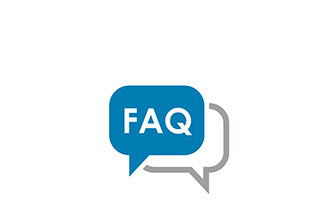
10 to 12 weeks per course level
Mode of study:
20 hours a week face-to-face on campus plus 5 hours’ test practice (Daytime courses only)
20 hours a week face-to-face on campus (Evening)
Maximum class size is 18.
Timetables are subject to change.
Perth
Sydney Hyde Park
CRICOS:
Cambridge Preparation – B1 Preliminary – 030816M
Cambridge Preparation – B2 First – 030815A
Cambridge Preparation – C1 Advanced – 030817K
Cambridge Preparation – C2 Proficiency – 030818J
Minimum age requirement is 16 years of age
Intermediate to advanced English
If you want to sit a Cambridge English test, our Cambridge English test preparation courses will give you the skills you need to succeed.
Cambridge English language tests are recognised and respected by companies, governments and universities around the world.
We run courses at four levels of Cambridge Preparation:
Navitas Cambridge courses are closed courses. Each course has a start and finish date and runs for a set number of weeks. Courses are aligned to the test schedules set by Cambridge. You and your classmates can sit the final official Cambridge test and share the same goals, while getting to know each other.
You will develop the listening, speaking, reading and writing skills you need to achieve the best result you can. You will also learn special test strategies and life-long study skills to improve your Cambridge performance and help you become an independent learner.
Each day, you will do an hour of test practice. This is an opportunity to familiarise yourself with each section of the test and practise each one under test conditions. You will get ongoing feedback on your progress. On the day of the test, all this practice will make it much less stressful!
Our Cambridge test preparation courses all have two mock tests. You receive individualised feedback on your progress and personalised advice for course learning goals.
Your learning in our Cambridge courses is linked directly to the official Cambridge test skills, and will help you improve your Cambridge score. For more detail on Cambridge Preparation learners outcomes, see here.

You will improve your reading skills to better understand written texts on general topics.

You will produce a range of texts, including letters, emails, articles, reviews, reports and essays.

You will improve your listening skills across a range of situations from short monologues to multi-person conversations between native speakers.

You will learn to speak with greater control and accuracy, and develop your pronunciation and intonation.

Listening and speaking: earning a living
Practice – vocab review.
Vocabulary – jobs, matching activity.
Watch – TED video about work/life balance.
Speaking – construct a study/life balance for the course.
Test practice.
Listening
Language – past simple vs present perfect.
Lead-In – summer camp jobs model letter.
Practice – controlled written practice in context of job interview questions.
Practice – controlled and freer oral practice.
Writing: formal letter
Lead-In – job application letter.
Text type analysis – structure, tone, practice genre specific chunks and salutations.
Writing – pairs plan a formal letter and peer edit.
Test practice.
Language – present perfect vs present perfect continuous.
Test – peer check test practice.
Language – present perfect vs present perfect simple.
Practice – controlled written and oral practice.
Edit – error correction.
Reading: Innocent Smoothies
Skills – identifying the topic – skimming.
Skills – identifying text structure.
Practice – multiple choice (Reading).
Language – vocabulary – deducing meaning from context.
Reading
Test practice.
Listening – higher education.
Skills – prediction and listening for gist.
Exam strategy – listening for opinion and agreement/disagreement.
Practice – part 1 – multiple choice.
Speaking – advice to school leavers.
Language – vocabulary – collocation.
Language – articles, count/uncountable nouns.
Test focus – use of English part 2.
Test strategy – part 2.
Practice – part 2 – Albert Einstein gap fill.
Language – articles, count/uncountable nouns related to text.
Test practice.
Speaking: education
Practice – discussing education systems in your country.
Vocabulary – collocations in ‘education’.
Test strategy – giving/asking for opinion.
Language – language for agreement/disagreement.
Test focus – part 4 – discussion (Speaking).
Language – remembering things
Exam focus – use of English part 3
Exam strategy – part 3
Practice – part 3 – remembering for exams – word formation task.
Language – forming adjectives with suffixes
Speaking
Test practice
Team-building excursion
Motivational tasks – students perform team-building tasks to help the group get to know each other and build a strong foundation for group learning.



